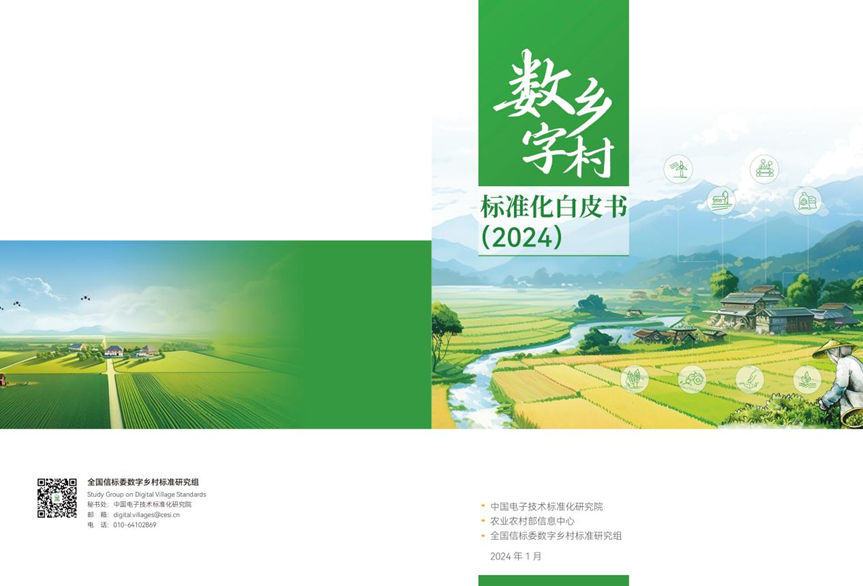
English | 中文

The White Paper on the Standardization of Digital Villages released
source:goldencsr date:2024-01-31 09:14:57As outlined in the report to the 20th National Congress of the Communist Party of China, “the most challenging and arduous tasks we face in building a modern socialist China in all respects remain in our rural areas. We will continue to put agricultural and rural development first, pursue integrated development of urban and rural areas, and facilitate the flows of production factors between them. We will move faster to build up China's strength in agriculture and steadily promote the revitalization of businesses, talent, culture, ecosystems, and organizations in the countryside”.
The building of digital villages is a significant initiative to advance rural vitalization, and is an important part of the building of a digital China. On the afternoon of January 22, 2024, in order to deepen industry and standardization research on digital villages and to support digital village development with standards, the Digital Village Standardization Research Group of the National Information Security Standardization Technical Committee (NISSTC), the Information Center of the Ministry of Agriculture and Rural Affairs, and the China Electronics Standardization Institute jointly convened the "2023 Plenary Meeting of the NISSTC Digital Village Standardization Research Group" in Beijing.
At the plenary meeting, representatives from the government, experts, enterprises and institutions were invited to share the latest research results and release the 2024 work plan, which accelerated the future work on the standardization of digital villages.
As a contributing unit, GoldenBee (Beijing) Management Consulting Co., Ltd. participated in the compilation of related content of the current progress of digital village in the White Paper on the Standardization of Digital Villages (2024) released at the meeting.

The White Paper comprehensively elaborates on the connotation, current progress, standardization status and standardization need of digital villages, and systematically reviews the multi-dimensional reference structure, typical application scenarios and key technologies of digital villages. It also enriches relevant content of the framework of standard systems for digital villages and the sub-systems, and presents the list of standards that shall be developed urgently.
The compilation and release of the White Paper will provide systematic references and guidelines for the standardization of digital villages during the 14th Five-Year Plan period and for some time to come for local governments and relevant standardization organizations.